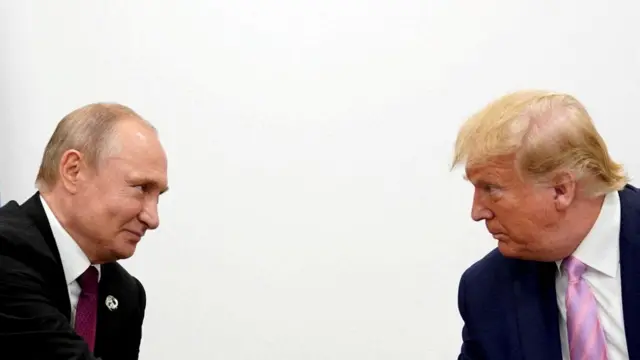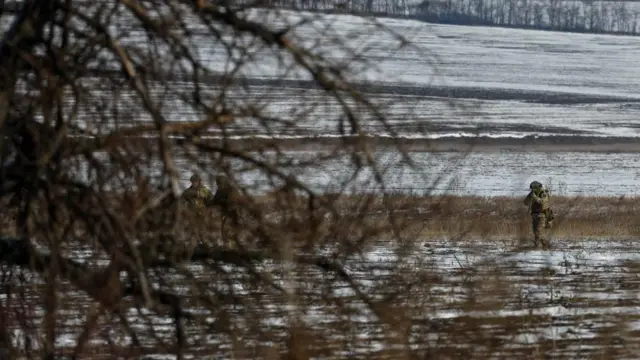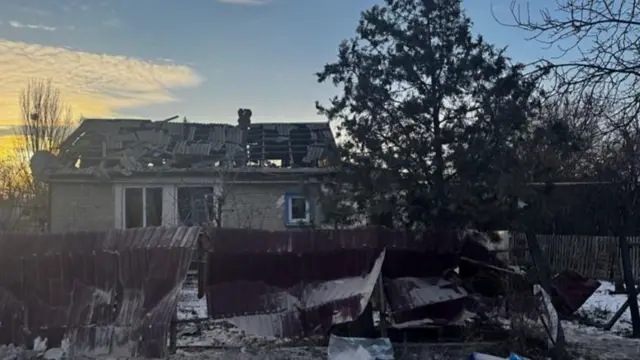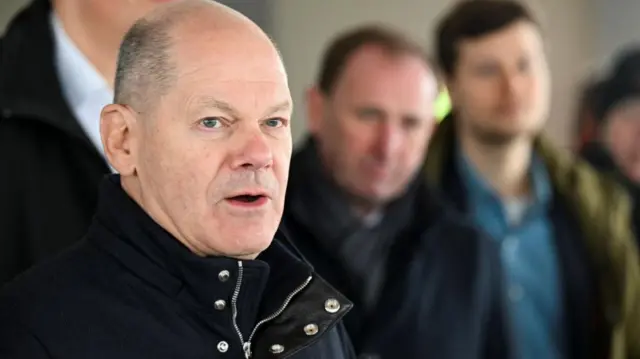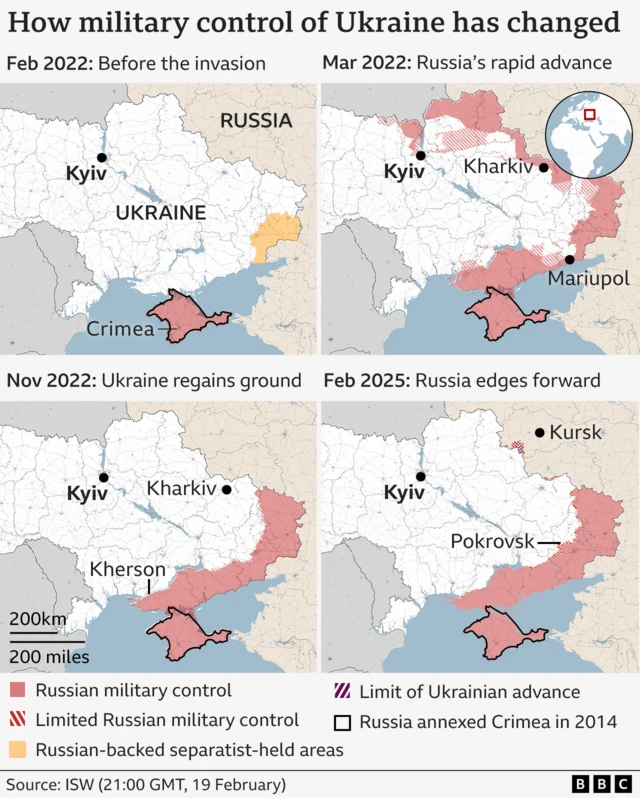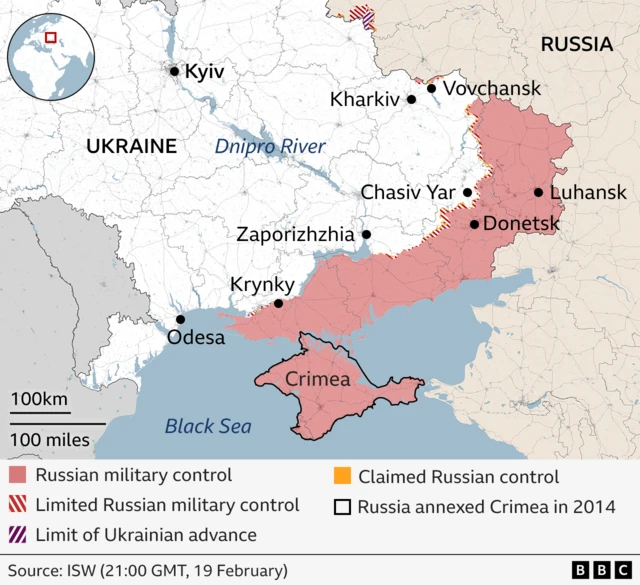
How can European leaders resist Trump's pressure?published at 13:02 GMT 21 February
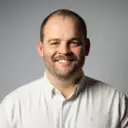 James Waterhouse
James Waterhouse
Ukraine correspondent in Kyiv
Trump seems to be pressurising Zelensky and European leaders to accept a profoundly unfair peace settlement. How can they resist this pressure? Are there ways they can put him under pressure to compromise - to agree to a settlement that's fairer to Ukraine? From James in Cambridge.
Volodymyr Zelensky is at his lowest point in his relationship with the US since the invasion.
As Europe works out how it can step up, he’s got a Russia-friendly US president trying to get access to Ukraine’s natural minerals in exchange for military help.
He also isn’t even sitting at the negotiating table where his country’s future is being discussed.
In the past, battlefield progress was his best currency as allies debated how to help Ukraine.
But Russian dominance in a grinding war has fed a tiredness which has seemingly reached the White House.
If Emmanuel Macron of France and UK Prime Minister Sir Keir Starmer can convince Donald Trump that they have a European plan on their visits to Washington next week, perhaps the political tide could turn.
But at the moment, it seems any ceasefire deal would more likely favour Moscow, rather than Kyiv.
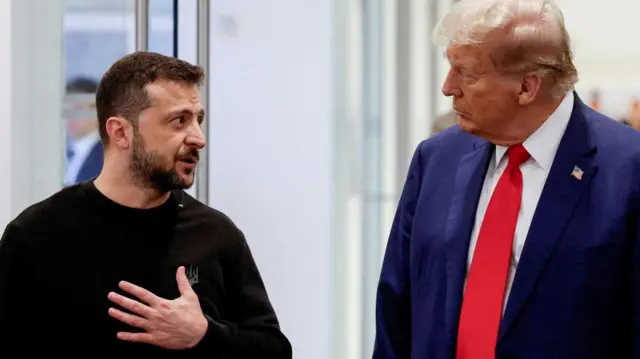 Image source, Reuters
Image source, Reuters


